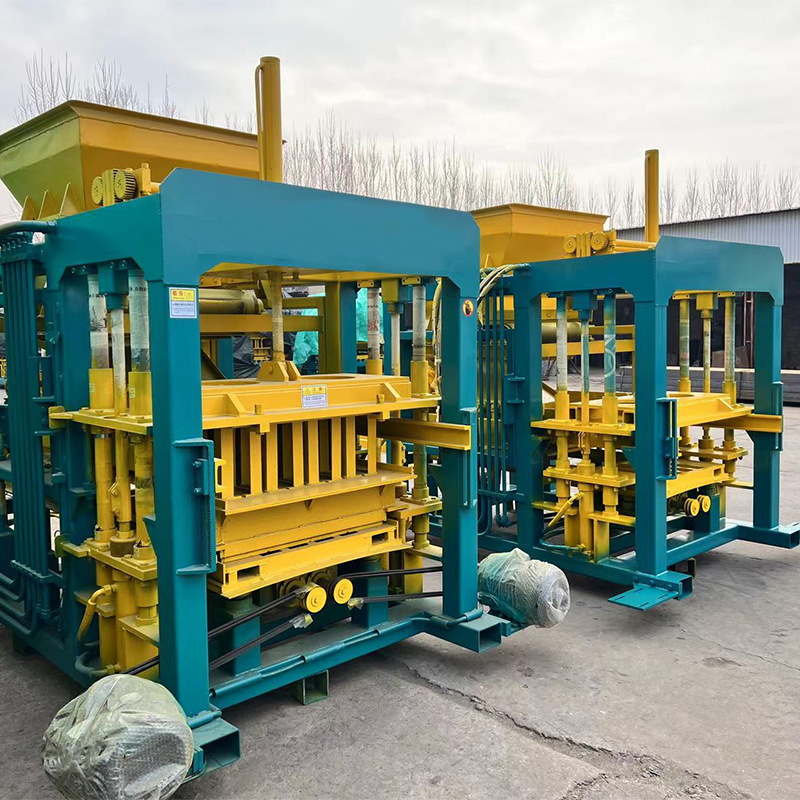
Image source Aiwei Block Machine
How Smart Machinery is Transforming Brick Block Manufacturing
Introduction
The manufacturing landscape is undergoing a revolutionary transformation with the integration of smart technologies. From automation and data analytics to the Internet of Things (IoT) and artificial intelligence (AI), industries are experiencing unprecedented levels of efficiency, accuracy, and productivity. The brick block manufacturing sector is no exception. Smart machinery is redefining the way bricks and blocks are produced, leading to enhanced quality, reduced waste, and improved sustainability. This article delves into the impact of smart machinery on brick block manufacturing and explores the technologies driving this transformation.
1. The Rise of Automation in Brick Block Manufacturing
Automation is at the forefront of the smart machinery revolution in brick block manufacturing. Traditional manufacturing processes often involved labor-intensive tasks prone to human error and inconsistency. With automated machinery, these processes are streamlined, ensuring precision, speed, and reliability. Automated brick block manufacturing lines incorporate robotic arms, conveyor systems, and sensors to carry out tasks such as mixing, molding, cutting, and stacking. This not only reduces the need for manual intervention but also results in consistent product quality and increased production rates.
2. IoT-Enabled Monitoring and Control
The Internet of Things (IoT) has empowered manufacturers with real-time monitoring and control capabilities. Smart machinery in brick block manufacturing is equipped with sensors that collect data on factors like temperature, humidity, pressure, and vibration. This data is transmitted to a central control system, allowing operators to monitor and adjust production parameters remotely. IoT-enabled machinery facilitates predictive maintenance, as anomalies and potential issues are detected early, minimizing downtime and optimizing machinery performance. Manufacturers can make informed decisions based on data insights to enhance efficiency and reduce operational costs.
3. Data Analytics for Process Optimization
Data analytics plays a pivotal role in optimizing brick block manufacturing processes. The vast amount of data collected from smart machinery is analyzed to identify patterns, trends, and inefficiencies. Manufacturers can gain insights into production bottlenecks, material usage, energy consumption, and more. By leveraging these insights, they can make informed decisions to optimize workflows, reduce waste, and improve resource allocation. Data-driven process optimization leads to increased productivity, reduced environmental impact, and enhanced overall operational efficiency.
4. AI and Machine Learning for Quality Control
Artificial Intelligence (AI) and machine learning algorithms are transforming quality control in brick block manufacturing. Smart machinery can capture detailed images of each brick or block produced. AI-powered algorithms analyze these images to identify defects, variations in dimensions, and color inconsistencies. Machine learning models are trained to recognize different quality criteria, ensuring that only products meeting stringent standards move forward in the production line. This not only reduces waste by identifying faulty products early but also enhances the final product’s overall quality.
5. Sustainable Practices and Resource Efficiency
Smart machinery is contributing to sustainable practices in brick block manufacturing. The precise control offered by automated systems minimizes material wastage. Additionally, IoT-enabled monitoring of energy consumption helps optimize machinery performance for energy efficiency. Manufacturers are also embracing the use of recycled and eco-friendly materials, and smart machinery can handle these materials with precision. The integration of sustainability into smart manufacturing aligns with global efforts to reduce the environmental footprint of the construction industry.
6. Customization and Flexibility
In the past, brick block manufacturing often involved producing large quantities of standardized products. Smart machinery has changed this paradigm by enabling customization and flexibility. Advanced machinery can easily switch between different molds and settings, allowing manufacturers to produce a wide range of brick and block designs. This flexibility addresses evolving market demands and architectural preferences, contributing to more diverse and creative construction projects.
7. Human-Machine Collaboration
Contrary to concerns about job displacement, smart machinery in brick block manufacturing often facilitates human-machine collaboration. Skilled workers are essential to oversee and maintain the machinery, troubleshoot issues, and make strategic decisions based on data insights. The role of the human workforce evolves from manual labor to more sophisticated tasks that require critical thinking, problem-solving, and technical expertise.
Conclusion
The integration of smart machinery is revolutionizing brick block manufacturing, paving the way for a more efficient, sustainable, and technologically advanced industry. From automation and IoT-enabled monitoring to AI-driven quality control and process optimization, these innovations are reshaping the manufacturing landscape. The transformation not only enhances productivity and product quality but also aligns with the industry’s efforts to embrace sustainability and reduce environmental impact. As the synergy between technology and manufacturing continues to evolve, the future of brick block manufacturing promises even greater levels of innovation and efficiency.
